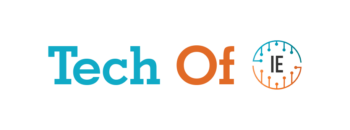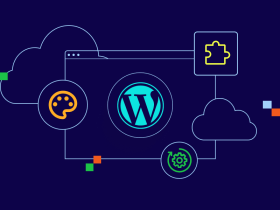In today’s data-driven business world, analytics plays a critical role in guiding decision-making processes and driving growth. Companies in Mumbai are increasingly relying on business analytics to gain insights, optimize operations, and develop competitive strategies. However, with this rise in the use of data, there is a growing need to address ethical considerations in analytics projects. Understanding these ethical aspects is crucial for anyone pursuing a business analysis course or a BA analyst course to ensure that they handle data responsibly. This article explores the ethical challenges and best practices in business analytics for Mumbai companies, emphasizing the importance of ethical conduct in achieving sustainable business success.
The Role of Ethics in Business Analytics
Ethics in business analytics refers to the principles and standards that guide how data is collected, analyzed, and used. It involves ensuring that the data practices do not harm individuals, violate privacy rights, or lead to biased outcomes. In a vibrant business environment like Mumbai, where companies handle vast amounts of data, maintaining ethical standards is crucial to protect stakeholder trust and uphold brand reputation.
A business analyst course provides a comprehensive understanding of data ethics, emphasizing the importance of transparency, accuracy, and accountability in analytics projects. Professionals who have completed a BA analyst course are equipped with the knowledge to identify ethical concerns and implement strategies to address them, ensuring that their analysis contributes positively to business decisions without compromising ethical standards.
Data Privacy and Confidentiality
One of the most significant ethical considerations in business analytics is data privacy and confidentiality. Businesses need to make sure that the way they gather, store, and use data respects people’s privacy and conforms with regulatory requirements. For businesses in Mumbai, where consumer trust is essential, maintaining data confidentiality is crucial to prevent unauthorized access or data breaches.
A business analyst course teaches the principles of data privacy, guiding professionals on how to manage sensitive information responsibly. During a BA analyst course, learners gain practical skills to implement data protection measures, such as encryption and secure data storage, which help safeguard personal information. This focus on privacy is vital for maintaining the integrity of business analytics projects and building customer confidence.
Avoiding Bias in Data Analysis
Bias in data analysis can lead to misleading conclusions and unfair business decisions, which can have serious ethical implications. Data bias occurs when the dataset or the analysis process systematically favors certain outcomes over others. For companies in Mumbai, ensuring unbiased data analysis is crucial to making fair and informed decisions that reflect the true state of the market or customer preferences.
A business analyst course addresses the issue of bias in analytics by teaching methods to identify and mitigate these biases. Professionals who undergo a BA analyst course learn techniques for cleansing and validating data to remove inconsistencies that could skew results. By understanding these biases, data analysts can present insights that are accurate, reliable, and equitable.
Utilizing Predictive Analytics Ethically
Using past data, predictive analytics makes predictions about future patterns and behaviors. While this can be highly beneficial for businesses in Mumbai, it also raises ethical concerns regarding the misuse of data. Companies must ensure that they use predictive analytics in a manner that respects customer rights and does not lead to discrimination or unfair practices.
A business analyst course provides guidelines on the ethical use of predictive analytics, emphasizing the need to balance data-driven insights with moral responsibility. A BA analyst courseequips professionals with the skills to develop models that are not only accurate but also ethically sound, ensuring that predictions are used to enhance customer experiences and business operations without infringing on individual rights.
Transparency in Business Analytics Processes
Transparency is a core ethical principle in business analytics that involves being open about how data is collected, analyzed, and used. For companies in Mumbai, being transparent in their analytics processes helps build trust with stakeholders, customers, and regulatory bodies. It also ensures that all parties involved are aware of the methodologies and limitations of the data analysis.
A business analyst course focuses on developing communication skills that allow professionals to clearly explain their data processes to non-technical stakeholders. During a BA analyst course, learners are taught to document their methodologies and share their analytical approach openly. This practice of transparency helps in managing expectations and promotes a culture of honesty in data usage within the organization.
Adherence to Law in Data Analytics
Legal compliance is another critical aspect of ethical considerations in business analytics. Businesses must abide by data protection laws and rules, which specify how data should be handled. Examples of these laws and regulations are the Information Technology Act and the General Data Protection Regulation (GDPR). Adherence to these requirements is crucial for firms operating in Mumbai in order to avert legal consequences and uphold ethical standards around data operations.
A business analyst course provides an in-depth understanding of legal requirements related to data handling and privacy. Professionals who complete a BA analyst course gain knowledge about the legal frameworks that guide data usage, ensuring that their analytics projects are compliant with national and international laws. This focus on legal compliance helps companies mitigate risks and operate within ethical boundaries.
Data Sharing’s Implications for Ethics
Data sharing is a common practice in business analytics, where data is exchanged between different departments or even external partners. However, this practice raises ethical concerns about how data is used and whether it is shared with appropriate consent. In Mumbai’s interconnected business ecosystem, ensuring ethical data sharing is critical to maintaining trust and protecting sensitive information.
A business analyst course teaches the principles of data sharing, emphasizing the need for consent and data protection agreements. A BA analyst course provides strategies to manage data sharing ethically, ensuring that all parties involved understand their responsibilities regarding data usage. By following these guidelines, companies can ensure that their data sharing practices align with ethical and legal standards.
Developing an Ethical Framework for Business Analytics
Creating an ethical framework for business analytics is essential to guide decision-making and ensure that all data practices adhere to high ethical standards. This framework should include policies on data collection, storage, analysis, sharing, and disposal. For companies in Mumbai, developing such a framework helps establish clear guidelines for conducting analytics projects responsibly.
A business analyst course offers insights into building ethical frameworks that align with industry best practices and regulatory requirements. Professionals enrolled in a BA analyst courselearn to create comprehensive guidelines that address ethical dilemmas and set standards for data integrity. Implementing these frameworks ensures that business analytics projects are conducted transparently and ethically.
Continuous Training and Awareness
Business analytics ethics are always changing, therefore it’s important to remain current on the newest laws and practices.. Continuous training and awareness help data professionals keep pace with these changes and adopt best practices that enhance ethical decision-making. For data analysts in Mumbai, regular training is essential to remain informed about the ethical challenges and opportunities in the industry.
A business analyst course provides ongoing education on ethical issues, offering case studies and practical examples that highlight real-world scenarios. A BA analyst course encourages professionals to engage in continuous learning, helping them stay ahead in the rapidly changing landscape of data analytics. Because of their dedication to training, data professionals are guaranteed to follow ethical guidelines in all facets of their job.
Conclusion
Ethical considerations in business analytics are vital for companies in Mumbai to ensure that their data practices are responsible, transparent, and aligned with legal standards. For professionals looking to lead ethical analytics projects, enrolling in a business analyst course or a BA analyst course is a strategic step toward gaining the skills necessary to navigate these challenges. These courses equip data analysts with a thorough awareness of data ethics, privacy, bias, and legal compliance, enabling them to make defensible conclusions.
As data continues to drive business innovation, the role of ethics in business analytics will only become more significant. By understanding and implementing ethical principles in their analytics projects, companies can build trust, enhance their reputation, and achieve sustainable success in Mumbai’s competitive business landscape.
Business Name: ExcelR- Data Science, Data Analytics, Business Analyst Course Training Mumbai
Address: Unit no. 302, 03rd Floor, Ashok Premises, Old Nagardas Rd, Nicolas Wadi Rd, Mogra Village, Gundavali Gaothan, Andheri E, Mumbai, Maharashtra 400069, Phone: 09108238354, Email: enquiry@excelr.com.










